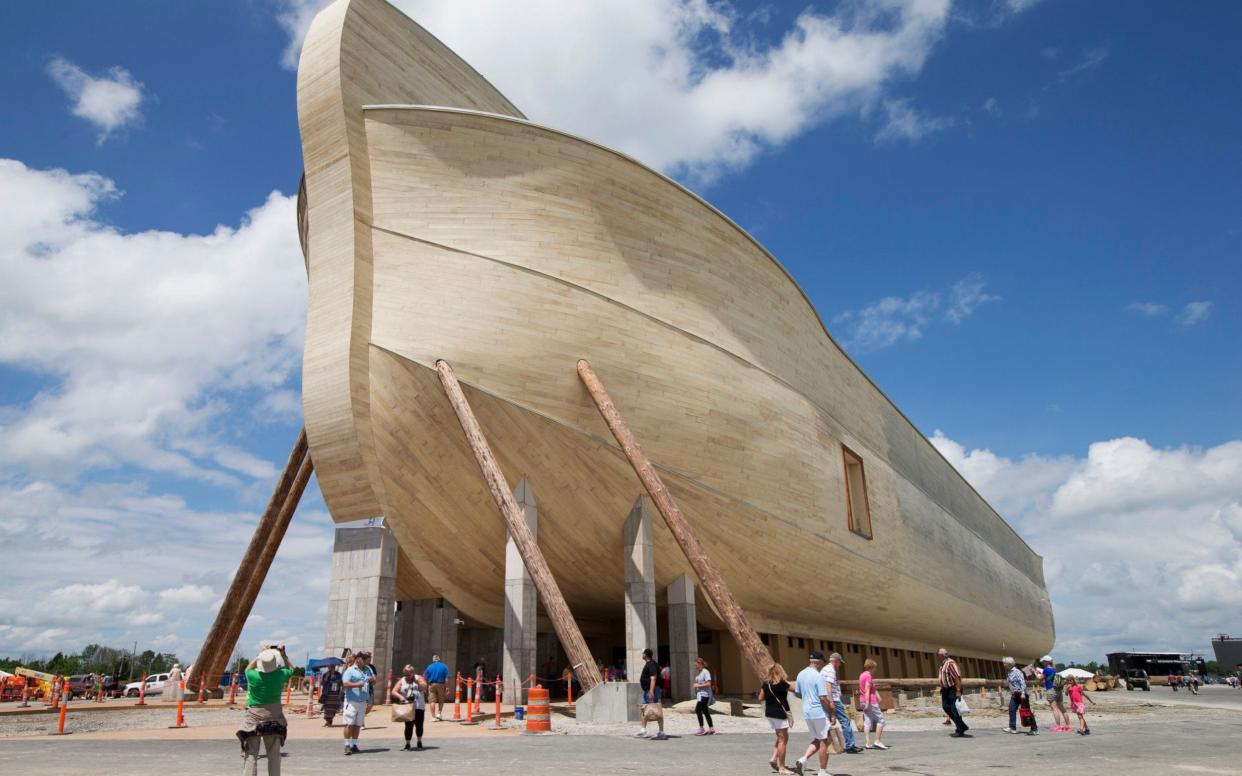Owners of replica Noah's Ark sue insurers for flood damage compensation

Noah's Ark may have survived an epic flood; unfortunately the owners of a replica in Williamstown, Kentucky appear to have been less fortunate.
Ark Encounter is accusing its insurers and underwriters of acting in bad faith after refusing to pay the full cost of the damage suffered by the theme park as a result of heavy rain in 2017 and 2018.
The 510-foot wooden ship, which was built on bedrock, appears to have emerged unscathed from the rainfall.
However, the same cannot be said for the land supporting the structure or the road used by 2.2 million visitors a year.
The company which owns the attraction has gone to court seeking $1 million to cover the cost of making good the damage suffered as a result of flooding.

"Subsequent to heavy rains, a significant landslide occurred along portions of the slope, which eliminated the structural support for the roadway, caused significant damage to the road surface itself and the incorporated improvements, and rendered portions of the road unsafe and unfit for use," the company alleges in a writ.
However, the insurers refused to pay more than a "very small portion" of the losses suffered by the company as it sought to carry out the necessary repairs.
While admitting that Ark Encounter's loss was covered by the policy, the insurers denied liability claiming the damage was due in part to design deficiencies and faulty workmanship.
In response, the biblical theme park's owners, who are seeking punitive damages, have accused the insurers of breach of contract and acting with "oppression, fraud and malice."
The row over the insurance claim is the latest controversy surrounding the attraction, which opened in July 2016.
Critics of the project objected to tax breaks offered by Kentucky, alleging that it breached the constitutional separation of church and state.
The insurers have not commented on the claim.

 Yahoo News
Yahoo News 
